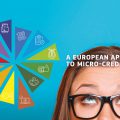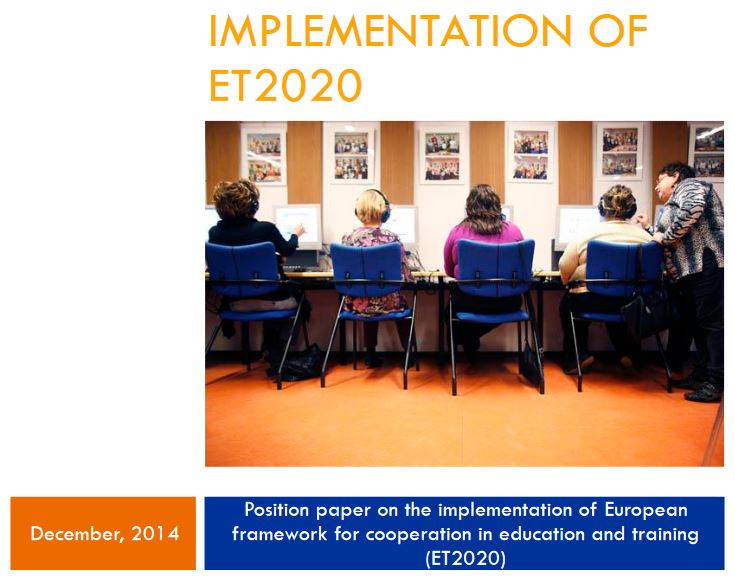
10 Mar ALL DIGITAL’s position on the proposed Council Recommendation on a European approach to micro-credentials for lifelong learning and employability
10 Mar, 2022
Background
On 10 December 2021, the European Commission released its proposal for a Council Recommendation on a European approach to micro-credentials. This initiative was announced in the European Commission’s annual Work Programme for 2021 and is in line with actions set out under the European Skills Agenda and European Education Area. It is now up to the Council of the EU to discuss and formally adopt the document. The Recommendation on micro-credentials is expected to be deferred to the Czech Presidency in the second half of 2022.
Overview
The chief purpose of the proposal is to set up a European approach to the provision of micro-credentials, including the definition and design guidance. Micro-credentials are accreditations of learning outcomes associated to small modules or specific skills or competences, as opposed to full course certificates or degrees which group together many learning outcomes. The proposal for a Recommendation lays out a particular focus on certain target groups, such as those re-entering the labour market, the self-employed, and platform workers, for whom traditional (i.e. formal) education and training opportunities tend to be inaccessible. Thus, it underlines and fosters the importance of non- and informal education and training offers.
ALL DIGITAL Vision and Mission
ALL DIGITAL believes that every European should be able to exploit the benefits and opportunities created by digital transformation. We aspire to equip European citizens with digital skills, give them added confidence, and a mind-set that allows them to understand and benefit from the digital transformation of society. This is what drives us, what defines our priorities and what underlies the distinct role that our network plays in Europe.
ALL DIGITAL perspective on micro-credentials
The action to develop an EU approach to micro-credentials is both timely as well as represents a key example of the role the EU can play in supporting co-operation and a coherent approach towards skills, qualifications, and enabling inclusive labour markets. The initiative rightly highlights the value of micro-credentials in the digital age: micro-credentials can foster the development of necessary skills to access new opportunities, new jobs, new careers, while at the same time offering support for civic, social and personal development, thus strengthening social participation and our democracies.
Digital skills development is a priority across several EU flagship policy frameworks. The digital transition underpins the New Skills Agenda and the Digital Education Action Plan. The European Pillar of Social Rights Action Plan and the Communication on the Digital Compass both set out system-wide, ambitious targets for developing digital skills for citizens and the workforce, as well as for developing businesses and infrastructure. The digital transition is also prominently featured in the Annual Sustainable Growth Survey 2022, which sets out the economic and social strategy for the EU for the current European Semester cycle.
Micro-credentials for digital skills are widespread and respond to a key need to support the development of these skills in a responsive and flexible way. Accordingly, the EU approach to micro-credentials must enable and support the ambitious goals set by the Commission to increase basic digital skills across the EU, not just in the ICT sector but across the workforce and, even more importantly, across the entire population.
In addition, the EU approach to micro-credentials must be developed in line with the feasibility study on a European Digital Skills Certification also announced by the Commission as part of the Digital Education Action Plan. The conceptual development, consultation and eventual governance and development of standards or guidelines for both actions must be closely aligned.
Role of non-formal education providers
The proposal rightly refers to the need for quality, standards, and transparency as essential parts of the approach to micro-credentials. The popularity of short-courses and MOOCs (Massively Open Online Courses). is due to their flexibility and accessibility, and the non-formal sector has played a leading role in providing these courses and micro-credentials. The approach to micro-credentials can only claim to be an EU approach if it properly reflects the living and breathing reality of micro-credentials in Europe, including the central role of non-formal education providers and the needs and demands of learners. It is therefore more than welcome that the Commission’s proposal acknowledges the importance of non-formal – and informal – training and education settings.
Micro-credentials issued by non-formal providers can facilitate learning pathways between formal and non-formal education, as well as professional and other opportunities, and should be recognised and valued for this role. A comprehensive approach to micro-credentials and a universal and inclusive provision of learning entitlements (for instance through the initiative on Individual Learning Accounts), recognising the role of non-formal providers, are the only way that a true culture of lifelong learning can be developed in the EU, thereby contributing to the delivery of Principle 1 of the European Pillar of Social Rights and the implementation of the education headline target under the Social Pillar Action Plan.
ALL DIGITAL stands ready to work with stakeholders for the application of a tool like micro-credentials for the enhancement of digital competences and other skills, but only if – following the second key recommendation of the ALL DIGITAL Manifesto on Enhancing Digital Competences in Europe, calling for an inclusive access to education and training – this application is truly inclusive of all.
ALL DIGITAL
ALL DIGITAL is a leading pan-European association based in Brussels, representing member organisations across Europe that work with 20,000 digital competence centres.
We focus to support Europeans that have an insufficient level of digital skills. That means that they’re having less chances to find work, to use online services, to have a better quality of life, to be included in today’s society.
We believe that every European should be able to exploit the benefits and opportunities created by digital transformation.
For further questions, please get in touch with Norman Röhner, ALL DIGITAL Policy Officer, at norman.rohner@all-digital.org








